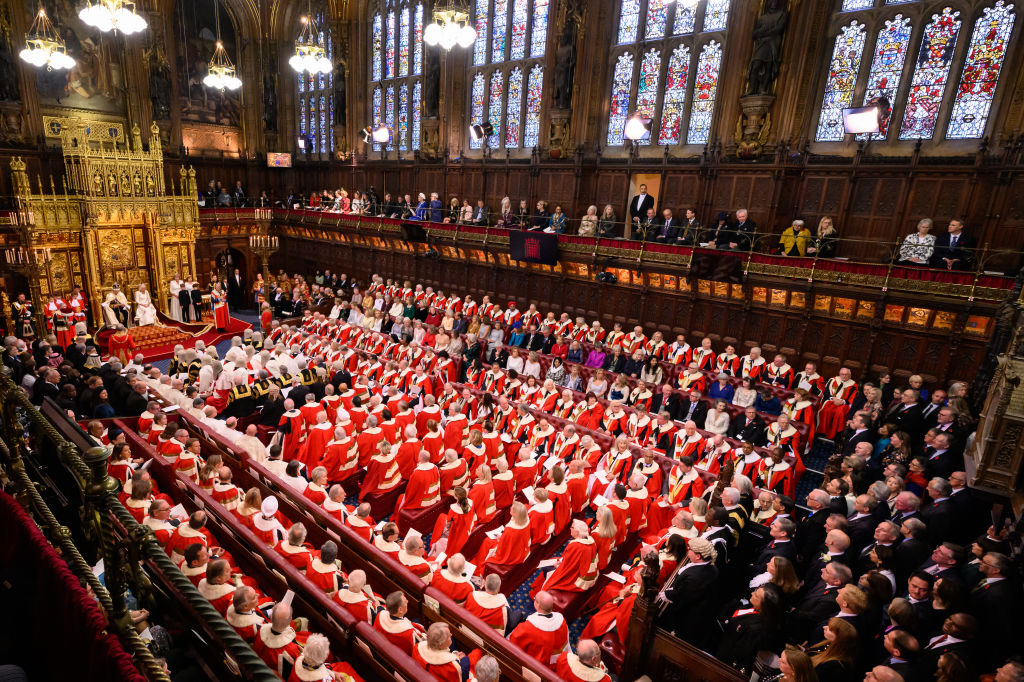Parliamentary procedures and conventions are often dismissed as ‘arcane’ or ‘byzantine’ by commentators. Still, on occasion, they can have a significant impact on politics – as demonstrated by the recent furore over a Labour amendment to the Gaza ceasefire motion in February.
Last week, a new paper in the House of Lords was published which has the potential to have a similar political impact – and could even save the government’s controversial Rwanda Bill, which is in its Report Stage today.
The paper, by the convenor of the crossbench peers Lord Kinnoull, is on the Salisbury-Addison convention, which says that the Lords will not vote against Bills which were in the government’s manifesto. The convention began in 1945 to deal with the relationship between a Labour government and a House of Lords filled with hereditary Conservatives.
The idea underpinning the convention is that manifesto bills enjoy a special form of democratic legitimacy as, directly or indirectly, they have been endorsed by the electorate.
In its current form the convention has evolved to mean that the House of Lords will give a manifesto Bill a second reading; it will not be subject to ‘wrecking amendments’; and it should be returned to the Commons in reasonable time. These protections are important when a government wishes to pass contentious legislation, especially ahead of a general election.
At present, the Rwanda Bill does not seem to benefit from these protections in the Lords. The 2019 Tory manifesto promised to ‘establish immigration controls’ but was mainly concerned with a points-based immigration system. There was no mention of the Rwanda plan.
Lord Kinnoull’s paper though examines the meaning of a ‘manifesto Bill’ and reaches a potentially surprising conclusion.
One of its more striking suggestions is that even if a Bill wasn’t explicitly set out in a manifesto, it may still be protected by the convention. The paper also suggests that there may be other elements that the Lords should consider when determining if a Bill should be protected, including whether the policy area featured in the most recent King’s Speech and whether the Bill has been passed by the House of Commons.
One of the examples chosen to illustrate the paper’s analysis is the government’s Rwanda Bill. Lord Kinnoull’s paper highlights the fact that asylum and immigration featured on the campaign trail and the subject ‘was widely covered and spoken about by the parties and the candidates.’ It also notes that the government has passed several tough asylum and immigration Bills since 2019, which have ‘all enjoyed conventional protection.’ It then states that:
‘The pattern of behaviour could be argued as being an example where a General Election campaign trail gave significant support in providing conventional protection to a Bill, and that that Bill became a Manifesto Bill.’
While it does not advocate for a particular position on the Rwanda Bill itself, its implications are pretty clear.
What does all this mean in practice? Initially this seems like a win for the government. Crossbenchers are the second largest group in the Lords after the Conservatives. While they do not vote in a block, and amendments to the Rwanda Bill seem inevitable, if they find this analysis convincing and observe the convention, it may well influence their behaviour when ‘ping pong’ begins between the two Houses (when amendments are contested).
If the Bill is believed to have the status of a manifesto Bill, it should prevent the Lords from insisting on substantial wrecking amendments that would undermine the Bill, or delaying it for such a long time that it fails to pass.
Assuming this is the case, then the most likely outcome is that peers will coalesce around amendments which seek to prevent the removal of asylum seekers to Rwanda until the majority of the protections introduced by the new Rwanda Treaty are implemented. This would be a political inconvenience for Home Secretary James Cleverly, but it should allow the government to get the Bill over the line before the next election.
So far, so positive for the Conservatives. But as always, politics is a game of snakes and ladders. In the longer term, if a manifesto Bill is given a wide definition and Labour wins the next election, it might have a more expansive effect. Labour is currently the third largest grouping in the Lords and may struggle to get its more contentious proposals through unless they are given some protection. Labour may well then be delighted with this new manifesto convention.






Comments